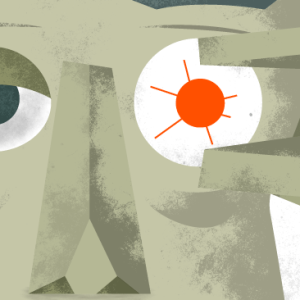Time to Wake Up?
● Fatigue is a Fatigue in 100,000 auto crashes and 1,550 crash-related deaths a year in the U.S
How Much Sleep?
● For optimal functionality, adults need an average of 7-9 hours of sleep a night
○ In a major sleep study, almost 80% of respondents admitted that they were not getting enough sleep
Sleep Deprived Disasters
● Nuclear Accident at Three Mile Island
Experts believe that sleep deprivation was a significant factor in shiftworker’s negligence
● Space Shuttle Challenger Disaster
According to reports, certain managers involved in the launch had only slept two hours before arriving to work at 1 a.m. that morning
● Exxon Valdez Oil Spill
Third mate Gregory Cousins was allegedly sleeping at the helm after working a 22-hour shift
The Long-Term Effects:
Memory Loss
Without sleep, your ability to consolidate memories, learn daily tasks and make decisions is impaired
Weakened Immune System
Even “modest” sleep deprivation (less than 6 hours of sleep per night) has been directly linked to reduced immune response
Sleep Paralysis
Those who are sleep deprived are more likely to wake in an immobilized REM state, resulting in feelings of fear and panic
Depression
Those with insomnia are 5x more likely to develop depression than those without
High Blood Pressure
Skipping sleep forces your heart to work overtime without a break, increasing your overall blood pressure and potentially leading to other heart conditions
Weight Fluctuations
When the body stays awake for too long, it struggles to process blood sugar and leptin (a protein hormone that regulates appetite and metabolism)
Damaged Bones
Researchers found changes in bone mineral density and bone marrow in rodents who had been deprived of sleep over a period of 72 days
Sleep as a Healer:
• Sleep helps to rid your braid and body of toxins and waste
• The flow of cerebrospinal fluid increases significantly during sleep, flushing waste from your brain
• Brain cells shrink up to 60% during sleep to make cleaning easier
• Sleep elevates the level of inflammation mediators, which can prevent the development of future diseases
How much sleep are you getting?
Sources:
http://health.howstuffworks.com/mental-health/sleep/basics/5-effects-of-sleep-deprivation.htm
http://www.webmd.com/sleep-disorders/excessive-sleepiness-10/10-results-sleep-loss
http://www.huffingtonpost.com/2013/03/06/scary-sleep-deprivation-effects_n_2807026.html
http://www.ncbi.nlm.nih.gov/pmc/articles/PMC2517096/
http://www.evostc.state.ak.us/index.cfm?FA=facts.details
http://blog.aarp.org/2013/10/21/a-good-nights-sleep-may-protect-against-dementia/
http://www.ncbi.nlm.nih.gov/pmc/articles/PMC3548567/
http://www.health.harvard.edu/newsletters/Harvard_Mental_Health_Letter/2009/July/Sleep-and-mental-health
http://healthysleep.med.harvard.edu/healthy/matters/benefits-of-sleep/learning-memory
http://www.medicalnewstoday.com/articles/262812.php
http://www.healthcentral.com/alzheimers/stages-8783-108.html?ic=506048
http://www.webmd.com/sleep-disorders/features/healing-power-sleep

